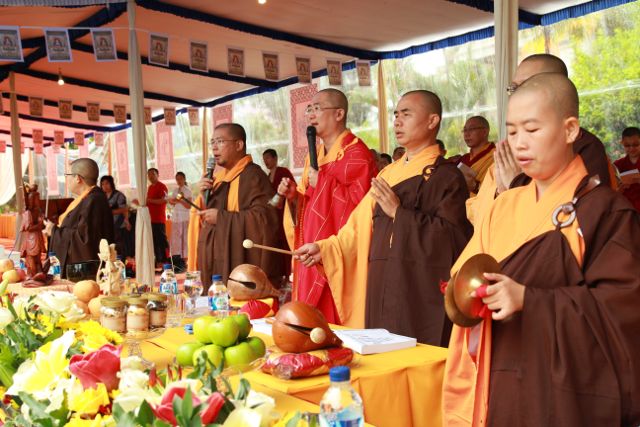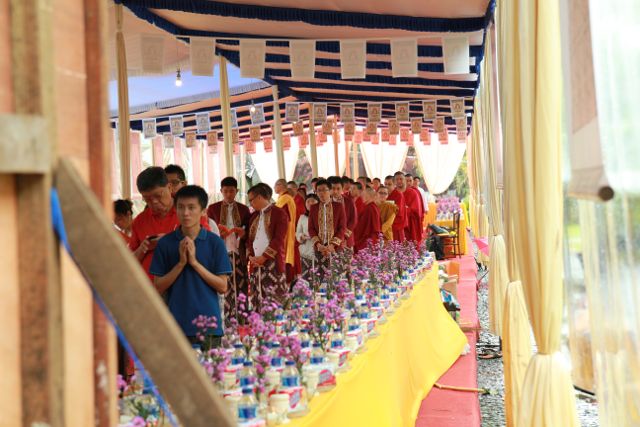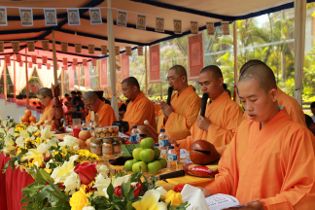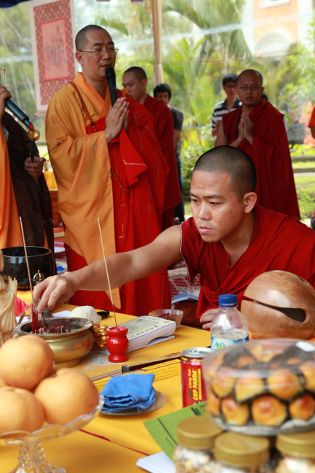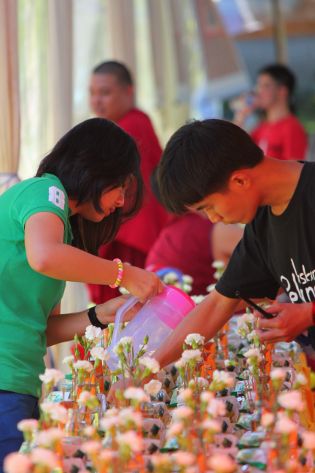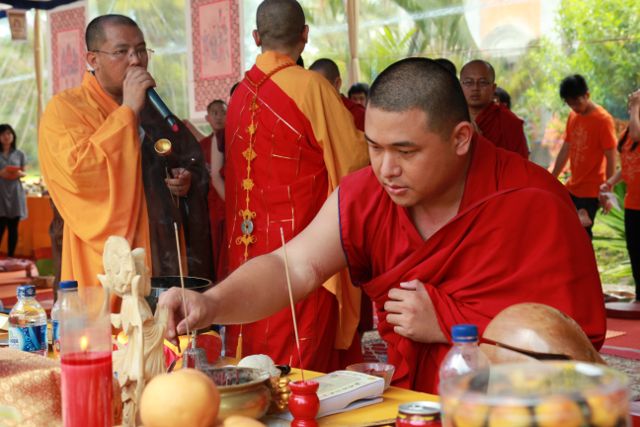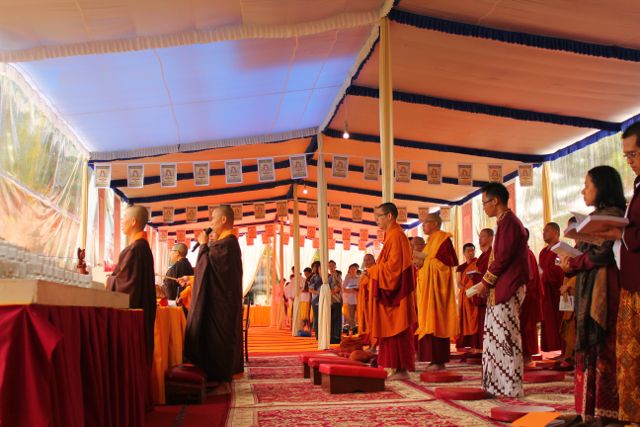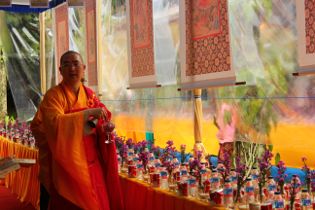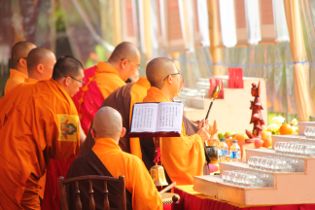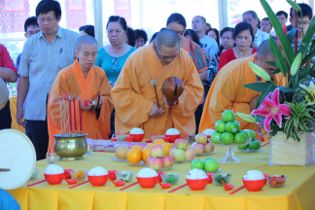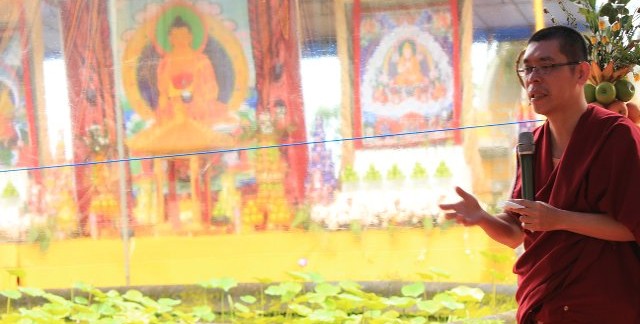
Mahapranidhana Puja 2—The Miracles of Heartfelt Prayer
All of us are the results of our own prayers. For better or worse, our present condition is the results of our own granted wishes. Dagpo Rinpoche often gives an encouraging advice that there is nothing much we can do regarding the past. What happened is already done. We must live up the consequences. However, there are still a whole wide range of hope for the future. The future depends on what we do in present time, on how we take advantage of our present opportunity.
The buddhists believe that a good initial motivation will determine the outcome of a good result. Therefore, we should make a good start of everything important in our lives. One important moment is the start of a new year. A new year provides a complete set of twelve months, consisting 365 days of opportunity.
We make take advantage of the time we have to make a sustainable progress. Regarding spirituality, it is an utmost importance to have a spiritual master—a skillful mentor to guide us. In order to have the opportunity to be taken care of a kind guru, we must make a sincere request—a heartfelt prayer. A prayer should go hand-in-hand with faith and devotion.
Prayer without faith is empty mumbling, no result can be expected. Prayer is for the future—a time in which nothing is of certainty. Teachings can be lost, spiritual goals forgotten, and vague friends can lead one another astray. Prayer with deep faith has power. It creates the propensity of mind directly affecting the person’s future actions and experience. But, for prayer to be effective, it must be heartfelt.
The practice of dharma basically can be divided into two kinds of activities: purification of bad karma and accumulation of merit. The Buddha himself is someone who has already completed these two kinds of activities. The term for Buddha in Tibetan is Sang-Gye. Sang literally means purification, removal of obscurations, cleansing. Gye means increasing. When the two has been completed, one achieves the state of Buddhahood.
* * * * * * * *
KADAM CHOELING INDONESIA (KCI) invites everybody to participate in the year-end prayer event, entitled Mahapranidhana Puja 2. The program consists of purification and merit accumulation, using the Emperor Liang’s repentance method called “Liang Huang Bao Chan”.
Emperor Liang Wu Di is known as one of the co-authors of a major scripture in Chinese Buddhism, titled Emperor Liang Jeweled Repentance (梁皇寶懺). The repentace records and details the reasons behind his wife’s transformation, examples of people affected by karma, stories about people receiving retribution, and what one can do to prevent it. The repentance also involves prostrations to a number of Buddhas.
Historically, Emperor Liang initiates this ceremony approximately 1,500 years ago. His wife, Chi Hui, died of age thirty after leading a life of jealousy and anger. After her death, she turned into a giant snake and purgatory. She came to recognize that she needed prayers from the Sangha to expiate her sins and release her soul from the lower realms. Through great generosity, Emperor Liang requested the bikshu Bao Zi and other high monastics to write ten chapters of the repentance. As a result of performing this ceremony, his wife’s soul was indeed from suffering.
The complete schedule for the Mahapranidhana Puja program is as follow:
Daily Schedule thorughout December 24 – 31, 2015
07.00 – 08.30 Breakfast
08.30 – 10.30 Liang Huang Recitation
10.30 – 11.30 Prostration
11.30 – 14.00 Lunch break and rest
14.00 – 16.00 Liang Huang Recitation
16.00 – 17.00 Break time
17.00 – 19.00 Merit accumulation program
To register for this program, log on to www.kadamchoeling.or.id/pray4rpc
